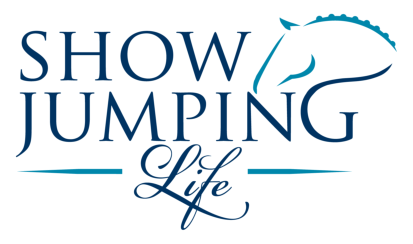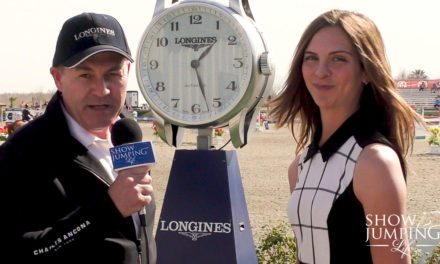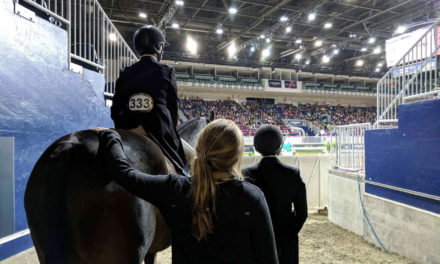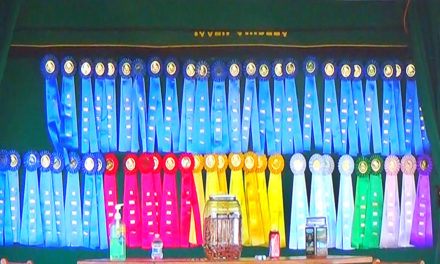Catch Riders May Risk Losing Amateur Status
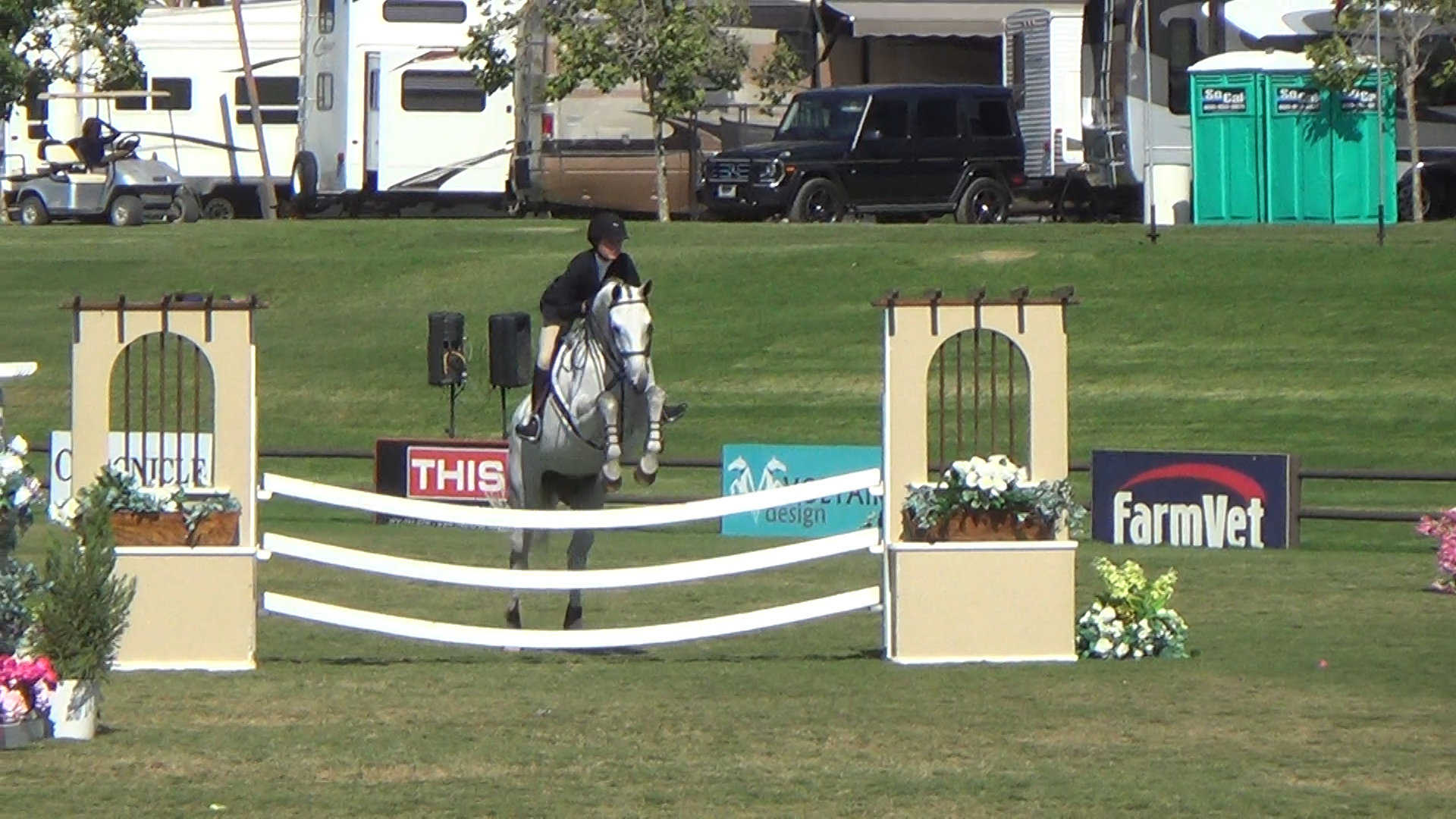
The Rules May Surprise You
Our previous editorial about Working Students and the implications for forfeiting Amateur Status generated a lot of response.
One reader asked if there would be similar risks for Catch Riders.
What Is A Catch Rider?
Besides the title of a popular book by Jennifer H. Lyne, a Catch Rider, as defined in the US Equestrian Federation’s (USEF) Rule Book as:
An individual who is engaged, for remuneration or as a volunteer, to compete on a horse(s) owned by another with whom they have no current business relationship regarding the ongoing training, care, custody or control of the horse.
Usually they are very good and capable riders that show often and get noticed in the ring.
Some riders go to shows hoping for the opportunity to “catch a ride”.
Definition Of Amateur/Professional
As we learned in our previous editorial, the primary factors that need to be considered when determining whether a rider is an amateur or professional are Age and Remuneration.
Rider’s Age
First, if the rider is under 18, then the amateur/professional rules in Chapter 13 do not apply.
In accordance with GR1307.1:
“Any person who has not reached his/her 18th birthday is an amateur and does not require amateur status.”
Therefore, if the rider is under 18, they are always deemed an amateur and can accept remuneration for riding, teaching, etc.
No need to worry about all those young pony jockeys!
Remuneration
Second, does the rider receive any form of remuneration?
The USEF rules clearly note that a catch rider may compete for remuneration or as a volunteer.
Obviously, if the rider is paid to ride, she/he is a professional.
Remember however, that remuneration can take many forms including cash, goods, sponsorships, discounts or services; reimbursement of any expenses; trade or in-kind, exchange of goods or services such as board or training.
Furthermore, if the rider has a relationship with someone who has received (or will in the future receive) remuneration, they may be at risk of forfeiting amateur status.
How Might That Affect A Catch Rider?
Let’s consider this real world example:
- An Owner hires a Trainer to train, show and hopefully, one day in the future, help sell her Hunter.
- The Trainer enters the horse in a show and signs up for two amateur hunter classes (Friday and Sunday).
- The trainer asks a successful Amateur Rider if she will show the horse in the two classes (Catch Ride for her).
- The Amateur Rider agrees to show the horse and they schedule an hour on Thursday so the rider
can ride and get familiar with the horse. - During the hour on Thursday, the Trainer works with the Amateur Rider while she’s on the
horse. The Trainer coaches the Amateur Rider, adjusting her position, explaining concepts like
rhythm and track and teaches her a few new techniques to ride the horse so they will be
successful. - On Friday, in the warm-up ring, the Trainer gives the Amateur Rider a few more tips before
the class. - The Amateur Rider and horse enter the class and they place a respectable fourth.
- After the class, the Trainer and Amateur Rider meet to have lunch, discuss what happened and review the round that the Trainer recorded on her iPhone.
- The Trainer shows the Amateur Rider where she was making an error and explains how to fix it.
- They agree to meet on Saturday so the Amateur Rider can work on the new skills.
- On Saturday the Amateur Rider gets on the horse in a warm-up ring. The Trainer and Amateur
Rider work on the new technique and within about thirty minutes, all are comfortable with the
improvements. - On Sunday, in the warm-up ring, the Trainer gives the Amateur Rider a few more tips before the
class. - The Amateur Rider and horse enter the class, using all of the information and skills she has learned
over the past four days. They win the class! - The horse’s Owner is thrilled. She pays for the classes and collects her prize money.
- The Trainer thanks the Amateur Rider for her work and explains that she can’t pay her or she will loose
her amateur status. - The Amateur Rider says that’s okay with her because she loves to show and the experience and lessons
learned were invaluable. - Everyone is happy except for one of the other amateurs that entered into Sunday’s class.
Is she right to, “cry foul”?
Here’s the answer that was provided by the USEF
If the Rider is over 18, then they would be permitted to receive lessons from the Trainer and they would be permitted to ride the horse assuming it does not conflict with GR1306.3k below.
It is correct that the rider cannot take prize money as GR1306.3d states that amateurs are only permitted to accept prize money as owners in all classes except equitation and showmanship. As long as the rider is otherwise qualified for amateur status under the rules and the amateur did not accept remuneration for riding the horse then they are compliant with the rules.
An exception of course would be if the amateur is required to pay the entry fee per GR1306.3k and this is dependent on the type of class.
Finally, and this point is important, the amateur would need to pay for the lessons/coaching received from the trainer because free [or discounted] lessons are considered a form of remuneration under the rules and if the rider received free lessons in exchange for riding a horse it could be a violation of GR1306.4a below.
GR1306.3d
3. Permitted activities by Amateur. An Amateur is permitted to do the following:
d. Accept prize money as the owner of a horse in any class other than equitation or showmanship classes.
GR1306.3k
3. Permitted activities by Amateur. An Amateur is permitted to do the following:
k. Entries for non-under saddle classes in amateur sections at hunter, jumper or hunter/jumper competitions, must be paid either (i) directly to the competition by the Amateur or by the Amateur’s family or (ii) by someone whom the Amateur or the Amateur’s family reimburses within 90 days of the last day of the competition for which entries were paid.
GR1306.4a
4. Professional based on one’s own activities. Unless expressly permitted above, a person is a professional if after his 18th birthday he does any of the following:
a. Accepts remuneration AND rides, exercises, drives, shows, trains, assists in training, schools or conducts clinics or seminars.
Guidelines Only
Please note that there are often many varying circumstances behind each person’s status and it is difficult to make a definite determination on a person’s status if the Federation does not have all the relevant information regarding the matter.
If anyone has questions or would like to have a clarification on the specifics of a situation to stay in compliance with the rules, it’s recommended that they send an e-mail to [email protected] where they can make a determination with the facts provided whether he or she would be considered an amateur or professional.
